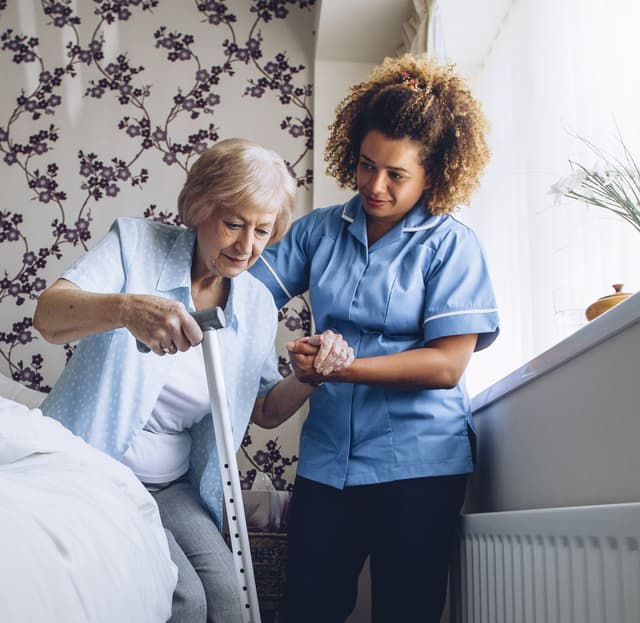
Live-In Care for Personal Care
As we age or have health issues, the everyday tasks we used to take for granted become harder to do. Personal care tasks like bathing, dressing, grooming and mobility are essential for health and dignity but often require help when our physical or cognitive abilities decline. For many people, especially elderly or those with disabilities, getting help with these tasks in their own home is not only preferred but necessary for their well being. That's where live in care for personal care comes in – providing extra support or full assistance that enhances life while respecting the individual's independence and dignity.
What is Personal Care?
Personal care is providing physical support to help individuals with activities of daily living that are required for personal hygiene, comfort and overall well being. These tasks include but are not limited to:
Bathing and Showering: Helping with washing, shampooing and getting in and out of the bath or shower.
Dressing and Grooming: Assisting with choosing clothing, dressing and grooming activities for overall health and pride in personal appearance - such as hair care, shaving and oral hygiene.
Toileting and Incontinence Care: Helping with toileting needs and managing incontinence with sensitivity and respect.
Mobility Support: Helping individuals move around their home, whether it's getting from bed to chair, walking or using mobility aids.
Live in care for personal care means these essential tasks are handled with care and professionalism so individuals can stay in their own homes with the support they need.
Benefits of Live-In Care for Personal Care
24/7 Support and Assistance: One of the biggest advantages of a live in carer is having a professional caregiver available 24/7. This continuous support is especially important for individuals with chronic conditions or who are at risk of falls or other emergencies. Knowing help is always available gives peace of mind to the individual and their family.
Personalised Care Plans: In order to give high quality care, live in care services are tailored to each individual's own care needs. Caregivers work with the individual and their family to respect their personal preferences, routines and cultural practices. This level of personalisation means the individual gets the care they need, when they need it.
Enhanced Comfort and Dignity: Personal care can be intimate and sometimes challenging. Live-in carers are trained to assist with sensitivity and respect, preserving the individual's dignity and comfort. Having the caregiver in their own home allows for sensitive personal care in familiar surroundings. Home care also provides a more private and personal approach to care, which is often more comfortable than getting help in other settings.
Better Health and Wellbeing: Proper personal care is essential for good health and improved quality of life. Regular bathing, grooming and hygiene prevent infections, skin conditions and other health issues. Personal care routines often include exercises and mobility assistance which are vital for physical health and independence.
Consistency and Relationship Building: Having the same carer present means building a strong trusting relationship. This is especially important in personal care where familiarity and comfort can make all the difference to the quality of care and the individual's overall wellbeing.
Support for Family Caregivers: For families who care for their loved ones, balancing caregiving with other responsibilities can be overwhelming. A live-in care service give family members a break, time to do other things, rest or just have some time to themselves knowing their loved one is in good hands.
Our Live-In Care Services
Why Use Us?
Compliance and Quality are a vital component of the specialist service provided by Cerise Healthcare. We guarantee the standard of our workforce.
- Fully trained in line with Skills for Care guidelines
- Fully enhanced DBS checked
- Provided proof of qualifications and all training
- Undergone face to face interviews
- Undertaken an extensive competency based questionnaire
- Provided valid references from previous employers covering the last three years
- Submitted a full work history with any gap accounted for

Common Questions
We understand that finding care is a major decision, so we're happy to answer any questions you have.
If you can't find the answer in our Frequently Asked Questions, please feel free to contact us.
What is an introductory agency?
As an introductory agency, we facilitate a direct match between clients and carers, that lead to a trusted relationship with better continuity of care.
Why use an introductory agency?
Using our introductory agency ensures that the caregivers are highly qualified, trained, properly vetted, and well-matched to the specific needs of clients, which will improve the quality of care provided.
How are qualified caregivers found?
At our agency we source potential caregivers through various channels, including job boards, social media, industry-specific websites, recruitment agencies, and referrals from current employees and clients.
What is the process for vetting caregivers?
Our vetting process includes background checks, reference checks, verification of qualifications and experience, interviews, and often practical assessments to ensure candidates meet our standards.
How are caregivers matched with clients?
We take great care to match caregivers with clients based on the client's specific needs, preferences, and requirements, as well as the caregiver's skills, experience, and personality. We aim to ensure a good fit to foster a positive and effective care relationship.